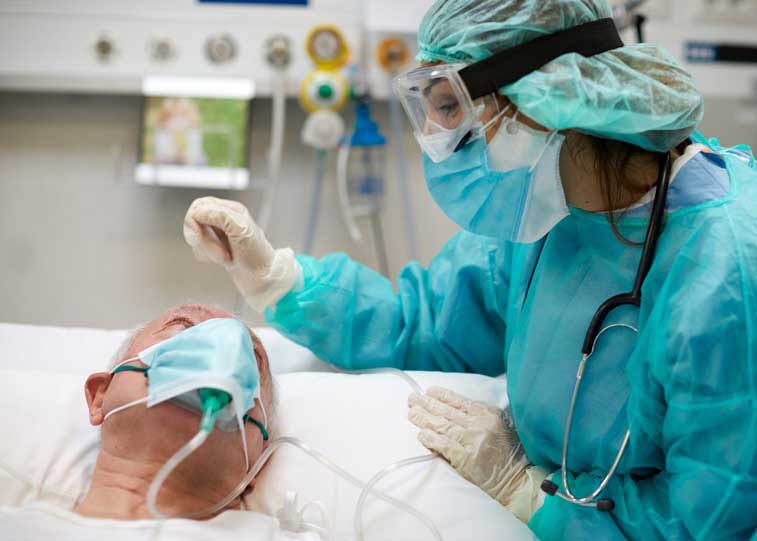24/7 Care Available at 10 Locations Across the Region
October 13, 2021
 One minute life is carrying on as usual, then – out of the blue – something unexpected happens and you or a loved one needs medical care … fast.
One minute life is carrying on as usual, then – out of the blue – something unexpected happens and you or a loved one needs medical care … fast.
While you can’t predict the future, you can prepare for life’s emergencies by staying in the know about your options and understanding where to find care quickly.
For serious medical emergencies like a heart attack or stroke, your destination should be the nearest emergency room or a call to 911.
Introducing the South Texas Health System Trauma & Critical Care Institute
One of the many ways South Texas Health System shows that your health is our purpose is by making sure emergency care is available when you need it, where you need it.
The South Texas Health System Trauma & Critical Care Institute is a network of four emergency rooms and six conveniently located freestanding emergency departments. Highlights of our emergency services include:
- South Texas Health System McAllen is designated a comprehensive Level I Trauma Center by the Texas Department of State Health Services and the American College of Surgeons.
- South Texas Health System Edinburg is an accredited Chest Pain Center, a certified Primary Stroke Center and a Level IV Trauma Center.
- South Texas Health System Children’s is the only pediatric Emergency Department in the Rio Grande Valley that provides emergency care just for kids.
- South Texas Health System Heart is a Primary Stroke Center and one of the first freestanding cardiology and cardiovascular facilities in the United States
All six of our freestanding emergency rooms are Chest Pain Management Certified and Acute Stroke Ready Hospitals as designated by The Joint Commission. In addition, they provide emergency care around the clock. South Texas Health System ER Weslaco is also a designated Level III Bronze Accredited Geriatric Emergency Department.
“The staff at our freestanding emergency rooms are able to keep things moving smoothly because there are no other departments to depend on,” says Carlos A. Ramirez, MD, MBA, FACHE, Chair of Emergency Medicine at South Texas Health System. “Testing and procedures are done there as well,” he adds, “so wait times are typically shorter than in traditional emergency department settings. That’s important for people who are in pain or have injuries that need to be taken care of as quickly as possible.”
Another advantage? Freestanding emergency departments are usually located close to neighborhoods, so people can easily access whatever emergency care they need.
“We are ready for anything, and we can deal with any emergency,” Dr. Ramirez says. “It’s nice to know you can get the care you need when you need it.”
Medical emergencies happen every day. And while you can’t plan for the unexpected, you can take comfort in knowing that the South Texas Health System Trauma & Critical Care Institute is here – demonstrating every day that your health is our purpose.
Emergency Room or Urgent Care?
As mentioned above, serious medical emergencies mean you should call 911 or head to the nearest emergency room. But where do you go for those minor, non-life-threatening concerns, like the flu, cuts and ear infections?
Use the following as a guide when you need helping deciding where to go. If you are unsure what type of facility to choose for your emergency, call 911 or go to the nearest emergency room.
Go to the ER or Call 911 for:
- Signs of possible stroke (slurred speech, facial drooping on one side, etc.)
- Signs of possible heart attack (chest pain, shortness of breath, etc.)
- Serious burns
- Fever with rash
- Difficulty breathing
- Broken bones
- Severe cuts
- Abnormal bleeding
- Concussion/confusion
Visit an Urgent Care Center for:
- Allergies
- Burns
- Cold or flu
- Coughs
- Cuts
- Ear infections
- Pulled/strained muscles
- Urinary tract infections
It is important to remember that an urgent care center is not a replacement for a continuing relationship with a primary care physician, who serves as your go-to for all of your healthcare services.
Remember! Certain medical conditions are simply too serious for urgent care centers and must be treated at a hospital ER.
